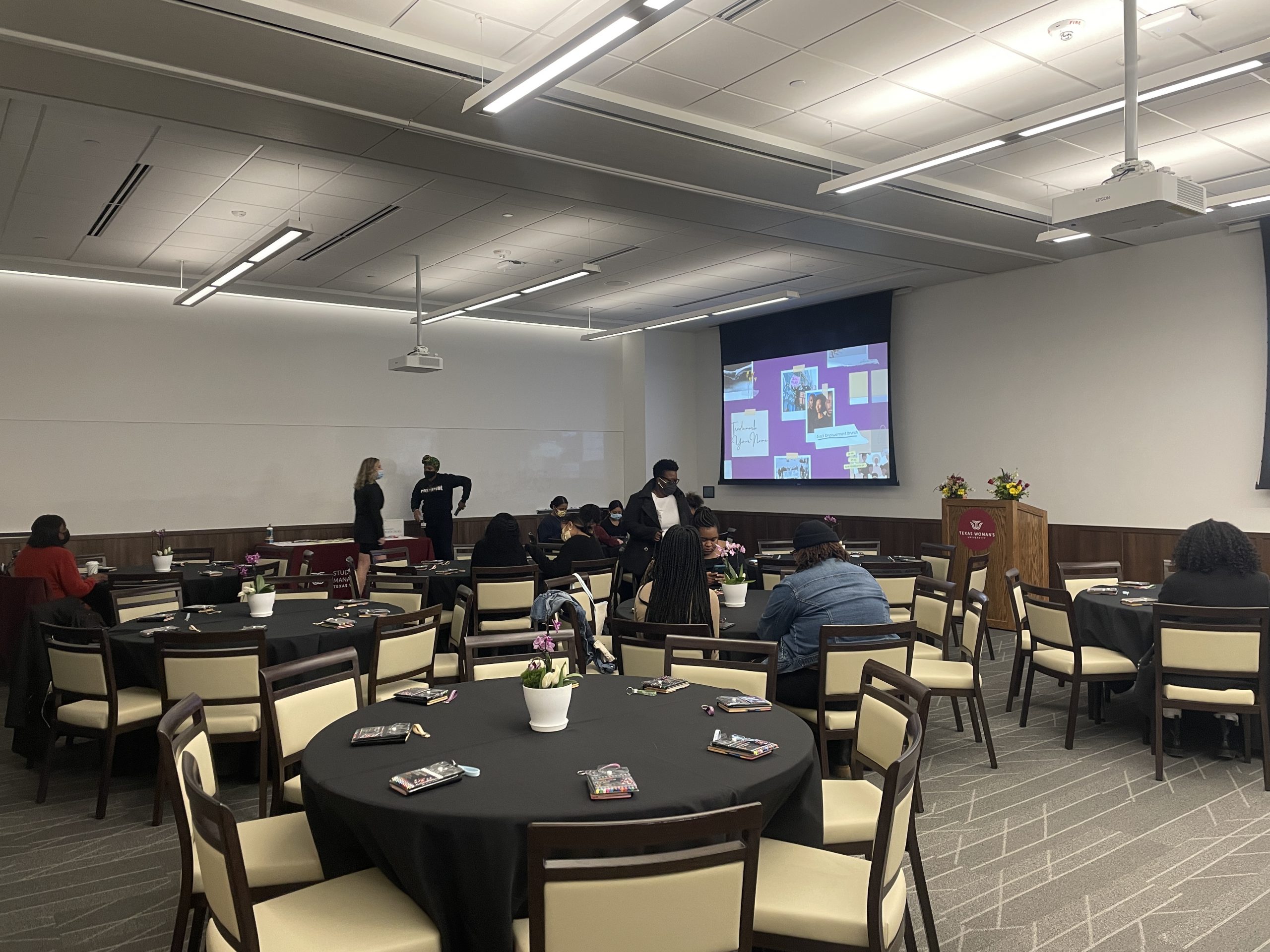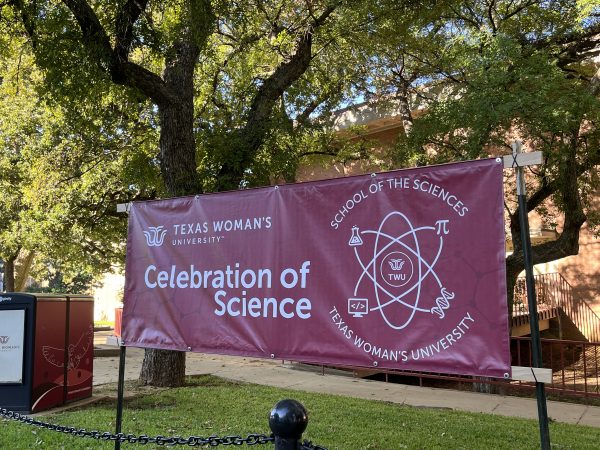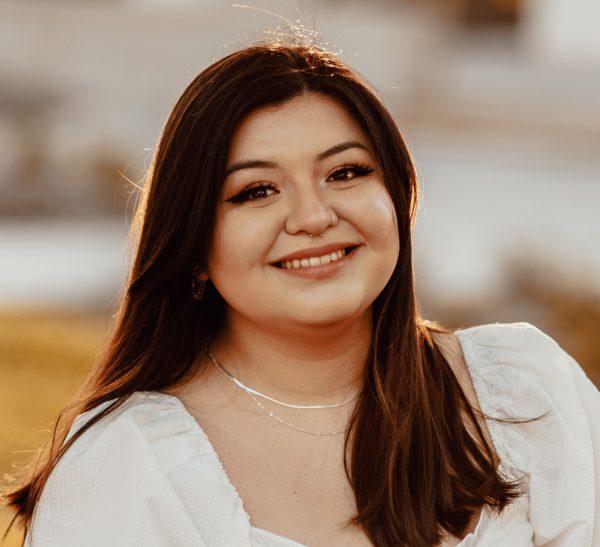Marianne Williamson was the one who asked, “who are we not to be?” in her infamous speech speaking on our deepest fears as human beings. Who are we not to be confident or resilient? Capable and willing of the life we live every single day while establishing who we are every step of the way.
The Black Empowerment Brunch is an event hosted by the Residence Hall Association (RHA) in hopes of empowering African-American and POC students around campus and inspiring them in the life they have.
This year, the brunch was planned by selecting what RHA thought students needed right now, which was pushing themselves forward and building wealth. This year’s theme was trademarking your name and establishing yourself with the name that you have.
The first speaker of the event was Soulgood owner and Texas Woman’s University (TWU) alumni Cynthia Nevels. Nevels was awarded as the 2018 Best Food Truck in Dallas and has created food for many celebrities, including Billie Eilish.
For seven and a half years, Nevels has struggled in establishing her trademark with her business, Soulgood, but this afternoon Soulgood was officially a trademarked business.
“The greatest transformation for me came in starting my business and going for it,” Nevels said.
Nevels laid out many different steps one can take in finding out. One step was owning everything you create. In this manner, you are able to control it all from start to finish.
“Oftentimes, businesses and corporations can get mixed up with making the dollar versus how you will make the dollar,” Nevels said.
Being able to not confuse the two when it comes to your business and making sure you have a strong foundation and plan when it comes to spearheading your business is essential.
“Demanding and controlling everything is how you can truly trademark yourself”, Nevels said.
Additional keynote speaker and Director of the Center for Student Leadership Lawrencina Oramalu spoke to students about three fundamentals that are essential in trademarking your name: breaking, building and branding.
To trademark anything means taking a certain word, phrase or symbol and identifying the trademark with a good or service. Trademarking is how customers often distinguish people from competitors,and essentially how it can be used the exact same way when it comes to our lives.
“We shouldn’t let people try to change our name, because they will”, Oramalu noted.
While being a student in college students typically answer to their major, classification and future career. This only teaches students their what and not their why.
Lawrencina challenged students to find their why; Why are they choosing the path they selected? Why is this their passion?
Sophomore Alyssa Vincent, a third-year attendee of the Black Empowerment Brunch, has enjoyed each event. She remarked this year’s brunch was informational and eye-opening.
“It made me see being a black woman is more than what society makes us,” Vincent said.
Taking ownership of your name was one key takeaway from Vincent. She did not realize how much power there was in a name.
“I think that really impacted me because we just throw our names around and how we let people use them and how they would like,” Vincent said.
Host and senior English literature major Gavriel Griffin was able to bask in this year’s brunch and share some of the beautiful moments since the start of the Black Empowerment brunch three years ago.
“At this point, RHA has trademarked this event as an annual RHA event so it will happen every year, preferably in February,” Griffin said.
One of the best ways to accomplish this goal was determining how you can set the tone for yourself in being black or a minority and make a name for yourself at the end of the day.
Griffin recalls her very first empowerment brunch, and how there was still a place missing for black students.
“The speakers were black but they were not pro-black. And I think there is a difference. I think that you can be black and not pro-black” Griffin said. “Being pro-black does not mean being anti-everything else, but having to do with being proud of being black. It means being proud of the melanin in your skin and the power that comes from your community.”
Brielle Gines can be reached via email at bgines@twu.edu.







Be First to Comment